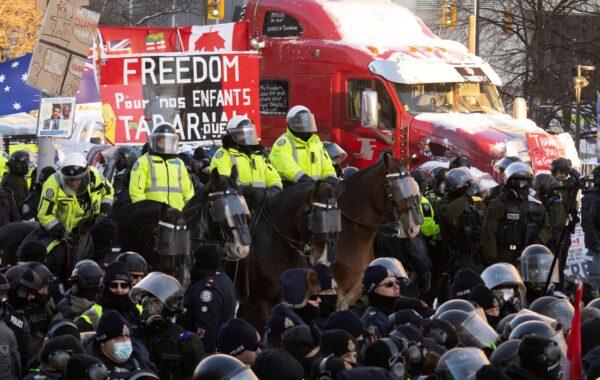Opposition MPs are criticizing the government’s freezing of Canadians’ bank accounts without a court order under Emergencies Act measures after it was revealed that at least 206 accounts totalling $7.8 million have been frozen due to support of the Freedom Convoy.
Government officials were questioned on the issue during a Finance Committee (FINA) meeting on Feb. 22.





